
Of the most important elections in 2015, it’s a safe bet to argue that three of them took place in Greece: the January parliamentary elections, one insane roller-coaster of a referendum in July and another snap parliamentary vote again in September.
So what is the world to do in 2016, when no one expects Greeks to return to the polls? (Though, Athens being Athens, it’s impossible to rule the possibility out.)
Fear not. The new year will bring with it a fresh schedule of exciting elections on all seven continents, including in the United States, which after a marathon pair of primary campaigns, will finally choose the country’s 45th president in November 2016.
But following American politics only begins to scratch the surface.
At least two world leaders in 2016 will put ballot questions to voters that could make or break their careers (and legacies).
New governments could emerge from elections in Taiwan, the Philippines, Morocco, Georgia, Peru, Jamaica, Ghana, Zambia and Australia.
Former president Nicolas Sarkozy will either advance or flame out in his bid for a French political comeback in 2016.
Semi-autocratic leaders in Russia, Uganda, Congo and Vietnam will seek endorsements from their voters while hoping that the veneer of elections doesn’t unleash popular protest.
An opaque series of votes in Iran could determine the country’s future Supreme Leader.
A mayoral election in London (and regional elections outside England) could reshuffle British politics with an even more important vote on the horizon in 2017.
One very special election could change the international agenda of world peace and global security altogether.
Without further ado, here is Suffragio‘s guide to the top 16 elections to watch in 2016. After a short break in the new year, your attention should turn to the South China Sea…
1. Taiwan: January 16
presidential and parliamentary elections
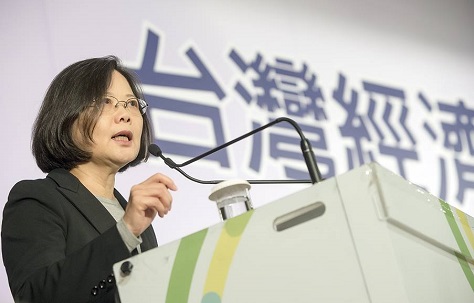
Barring a complete surprise, Taiwanese opposition leader Tsai Ing-wen (蔡英文) will easily become the next president of the Republic of China (ROC) in the new year’s first election, returning to power the nominally pro-independence Democratic Progressive Party (DPP, 民主進步黨) for the second time in Taiwan’s history.![]()
If she wins, Tsai will lead a country that is simultaneously moving closer to and farther from the mainland People’s Republic of China (PRC). Connections between Taipei and Beijing, since 1949 at least, have never been tighter. Direct flights now connect the two capitals and the two are increasingly important trade partners.
Yet the outgoing president, Ma Ying-jeou (馬英九), who is keen on building closer economic and cultural connections with the mainland, faced massive protests from the ‘Sunflower Student Movement’ when he attempted to enact a comprehensive accord with the PRC — the Cross-Strait Service Trade Agreement — in 2014. Taiwanese voters seemed equally unimpressed by the historic meeting in November between Ma and China’s president Xi Jinping (习近平).
The first presidential candidate that Ma’s ruling Kuomintang (KMT, 中國國民黨) nominated, Hung Hsiu-chu (洪秀柱), withdrew after her poll numbers sank. But her replacement, party chairman and New Taipei mayor Eric Chu (朱立倫), lags 15 to 20 points behind Tsai in most recent polls.
Notwithstanding the DPP’s cooler attitude toward China, Tsai has promised that her administration would not unilaterally declare independence, a step that could precipitate war in east Asia, drawing perhaps even the United States into a potentially global diplomatic crisis. But if the DPP also wins an absolute majority in the Legislative Yuan (立法院), relegating the Kuomintang to the parliamentary opposition for the first time, hardliners within her own party will argue that Tsai has a mandate for a more confrontational policy towards Beijing that would start by scrapping the polite fictions of the 1992 ‘one China’ consensus.
2. Uganda: February 18
presidential and parliamentary elections

Only six world leaders, including Iranian supreme leader Ali Khamenei and Zimbabwean president Robert Mugabe, have held continuous power longer than Uganda’s president, Yoweri Museveni, who is approaching his 30th anniversary in office. ![]()
For much of that time, Museveni has been a reliable ally of the United States and Europe, starting as a staunch anti-communist at the end of the Cold War and a stable hand in contrast to the wacky and horrifying rule of Idi Amin in the 1970s. More recently, Museveni has deftly and capably partnered with the United States in anti-terrorism efforts at a time when Somalia and, increasingly, Kenya and Tanzania, have become areas of concern in the global fight against radical Islamic jihadism.
In 2014, however, Uganda became a hotspot in the fight over LGBT rights in sub-Saharan Africa, and Museveni signed into law a new draconian measure that harshly criminalized same-sex activity. For Museveni, as for many other African leaders, it was an opportunity to demonstrate that their countries will not be lectured to by Western liberal activists.
More pressing concerns, however, such as economic development, social welfare, health and education and China’s growing influence, are on the minds of voters as the 70-year-old Museveni pushes for another five-year term. Nevertheless, infighting among Uganda’s opposition means that Museveni will almost certainly and overwhelmingly win reelection against longtime challenger Kizza Besigye and his former prime minister, Amama Mbabazi, who left the ruling party in 2014 when it became clear that Museveni would seek reelection.
3. Iran: February 26
Assembly of Experts elections
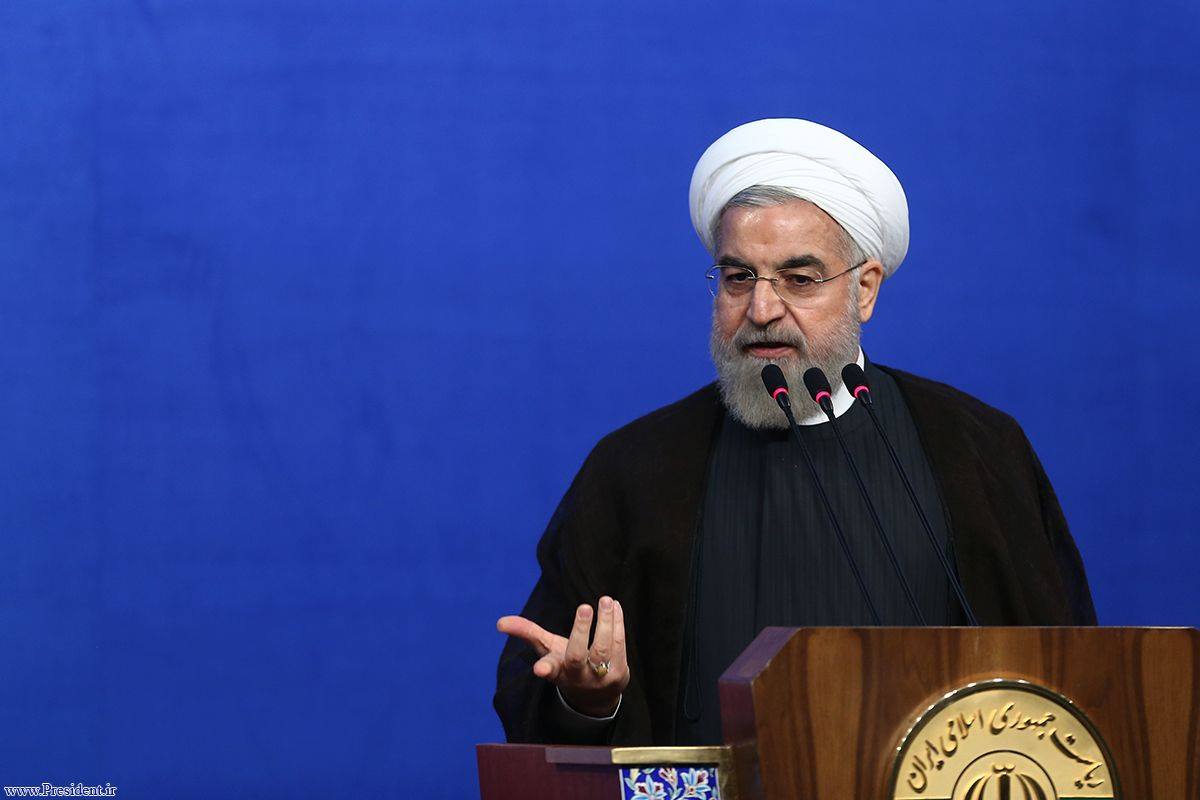
After emerging from difficult, years-long negotiations to secure a nuclear deal with the ‘P5+1’ group that lifts many international sanctions against Iran, its reformist president Hassan Rowhani now hopes to consolidate his power before a likely 2017 reelection bid.![]()
One of the keys to Rowhani’s long-term efforts is demonstrating that he can populate other government bodies throughout Iran with allies — or at least those sympathetic to his mission of opening Iran to the world.
The Assembly of Experts (مجلس خبرگان رهبری) functions as a kind of special legislative senate, and it is comprised of around 86 individuals chosen from among Iran’s top Shiite theologians that provide advice solely to Iran’s Supreme Leader, whose powers exceed by far those of any other office in the Islamic Republic, including the president’s. It is the Supreme Leader who essentially determines who is allowed to contest the presidency and other offices, and it is the Supreme Leader who determines how much power any elected president can wield. Most importantly, the Assembly of Experts are responsible for electing the new Supreme Leader.
In the history of the Islamic Republic, the Assembly of Experts has fulfilled this duty exactly once — in 1989, when it elected former president Ali Khamenei as the country’s second Supreme Leader. Khamenei, who has alternatively started and stopped Rowhani’s negotiations, is 76 years old. While there’s no indication that he is in ill health, there’s a chance that the Assembly of Experts could soon be called upon to choose a new Supreme Leader.
On the same day, Iranians will also elect the Islamic Consultative Assembly (مجلس شورای اسلامی), which functions as the Islamic republic’s consultative legislative body.
4. Peru: April 10
presidential and parliamentary elections

Ollanta Humala, once a leftist firebrand, governed much like his immediate predecessors — a business-friendly centrist content to make gradual improvements to the lives of everyday Peruvians. ![]()
But a corruption scandal implicating Peru’s first lady, Nadine Heredia, and heavy-handed responses to environmental protests in Peru’s mining regions, have left voters as disenchanted with Humala as with his predecessors, all of whom left office massively unpopular. That means that, following victories for conservatives in Venezuela and Argentina, Peru could also soon make a right turn politically.
Just as Humala, the runner-up in the 2006 election, became the frontrunner in 2011, the runner-up in the 2011 election is now the odds-on favorite in 2016 — Keiko Fujimori, the daughter of Peru’s president in the 1990s, Alberto Fujimori.
His daughter is quick to defend his controversial record, which essentially stabilized an economy fraught with hyperinflation and brought to heel the Marxist insurgent group, Sendero Luminoso (Shining Path), despite a record of authoritarianism and embezzlement that landed the former president in prison. A Fujimori restoration would almost certainly result in a pardon for the ailing 77-year-old, and the 2016 campaign could rehash painful matters that deeply polarized Peruvians. With her victory even more likely in 2016, however, Keiko has taken some steps to distance herself from the worst excesses of her father’s administration and from some of his longtime allies. In a bid to attract centrist voters, she has even embraced same-sex civil unions.
Her chief opponent, for now, seems to be another 2011 also-ran, Pedro Pablo Kuczynski (known to Peruvians as ‘PPK’), a neoliberal economist who served as finance minister and prime minister in the early 2000s. But Cesar Acuña, mayor of Trujillo on Peru’s northern desert coast, seems likely to run, as do two former presidents, Alejandro Toledo (2001-06) and Alan García (1985-90 and 2006-11).
Unless Fujimori can win an absolute majority in the first round, the top two candidates will face off in a runoff.
5. Scotland: May 5
regional assembly elections
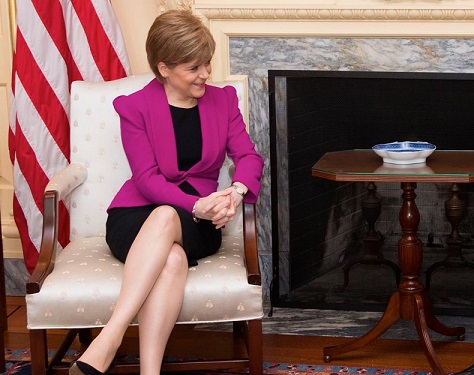
Though the pro-independence camp narrowly lost the September 2014 referendum over Scotland’s sovereignty, the campaign transformed Scottish politics, giving the separatist Scottish National Party (SNP), even in defeat, a new moral authority as an alternative to the mainstream Labour, Conservatives and Liberal Democrats. In the May 2015 general election, SNP candidates won 56 of Scotland’s 59 seats in the House of Commons, convincing the Scottish electorate that the SNP can best represent the region’s interests in Westminster. ![]()
![]()
First minister Alex Salmond, who won a minority government in 2007 and then a majority government in 2011, stepped down after the referendum. Yet his successor, longtime deputy Nicola Sturgeon, proved even more popular. Poised and elegant, Sturgeon has embraced a social democratic agenda with the vague promise that Scotland should one day have a second vote for independence.
In 2016, Sturgeon will compete for a fresh mandate within the Scottish parliament as the undisputed queen of the region’s politics. Another absolute majority for the SNP at the regional level, with an electoral system designed to produce coalitions, will breathe fresh life into the independence movement.
But that doesn’t mean the SNP won’t face challenges. After eight years in power, successive nationalist governments have enjoyed ever greater devolution from London. But neither Salmond nor Sturgeon used those enhanced powers to create the kind of left-wing Nordic paradise they claim they could bring to a sovereign Scotland, demurring from the opportunity to increase taxes for higher social spending.
National politics, too, may intervene in Scotland’s vote. The looming 2017 referendum on the United Kingdom’s continued membership in the European Union will prove as divisive in Scotland as elsewhere (though Scots are generally more pro-European than their English neighbors). The anti-politics of the Labour Party’s new left-wing leader, Jeremy Corbyn, tapped into the same sense of momentum and authenticity that propelled the SNP to such success in the 2015 election. Indeed, the Scottish Labour Party’s young new leader, Kezia Dugdale, will need some of Corbyn’s magic to restore Labour’s luster north of the Tweed.
Though the Tories remain as toxic as ever in Scotland, the leader of the Scottish Conservative Party, Ruth Davidson, is a down-to-earth and pragmatic moderate. Davidson, openly gay, hardly fits the stereotype of Bullingdon Club Tory toffs. Depending on how much Davidson can distance the Scottish Conservatives from prime minister David Cameron and his government in Westminster, her party might end up making the greatest gains of all in 2016.
6. Philippines: May 9
presidential and parliamentary elections
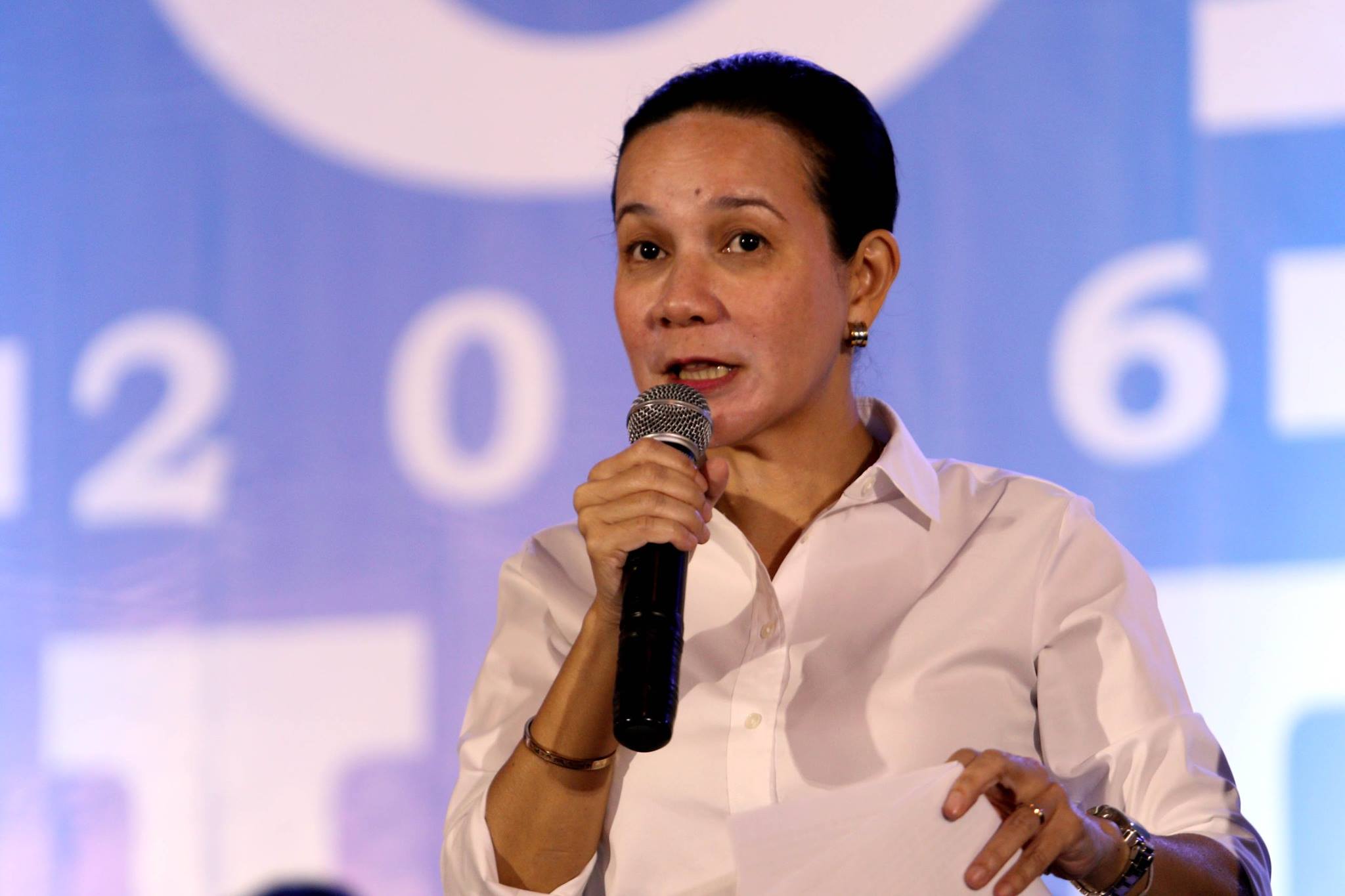
The Philippines may not be on everyone’s world politics radar — but it should be. A country of nearly 103 million people (making it the 12th most populous in the world), it is quickly becoming a vital strategic ally for the United States in the Pacific region and its economy is surging just as other Asian economies, including China’s and India’s, are sagging. ![]()
If he were eligible to run for a third term, Benigno Aquino III (known informally by his nickname, ‘PNoy’) might easily take the election. He’s presided over a fantastic economic expansion — when the Asian Development Bank lowered expectations for 2015 GDP growth, it lowered it to a respectable 5.9%, a level that even China, in the current downturn, must envy. For the son of an opposition leader who was assassinated, Aquino has brought unprecedented stability and ‘normalcy’ to his country.
Aquino supports Manuel ‘Mar’ Roxas, a former secretary of the interior and local government, Aquino’s running mate in the 2010 election and the grandson of former president Manuel Roxas, in the coming election as the standard-bearer of the ruling Partido Liberal ng Pilipinas (Liberal Party). A close friend of the outgoing president, Roxas lacks charisma, and narrowly lost the 2010 vice presidential race, despite Aquino’s landslide victory in the presidential contest.
Jejomar ‘Jojo’ Binay, currently the vice president who defeated Roxas in 2010, hopes to associate himself with the country’s ongoing economic boom, and is running under the banner of a new coalition, the United Nationalist Alliance (UNA). Allegations of corruption from his time as Makati’s mayor have dented his popularity and while he’s no longer the presidential frontrunner, he remains a contender.
Grace Poe, the daughter of a famous actor (Fernando Poe, Jr.) who launched his own bid for the presidency in 2004, burst onto the political scene in 2013 as an independent senator, easily winning more votes than any other senatorial candidate, though she shrewdly allied herself with ‘Team PNoy.’ At age 46, she is by far the youngest candidate among the top tier. Unlike Binay, she is not seen as corrupt, and unlike Roxas, she is not seen as part of the longstanding political elite.
Rodrigo “Rody” Duterte, a longtime mayor of Davao City, is running on a right-wing law and order campaign and regularly polls among the top four in voter surveys.
7. Tamil Nadu & West Bengal: before May
state assembly elections

Between May 22 and June 5, the terms of five legislative assemblies in India will expire. They include five states/territories with a cumulative population of around 230 million people. ![]()
That means that the late spring will host a series of elections, likely staggered in a months-long series of phases.
The largest prize will be West Bengal, home to 91.3 million, where chief minister Mamata Banerjee hopes to win a renewed mandate. From 1977, and for decades thereafter, communists controlled West Bengal’s government, based in the formal colonial capital of Kolkata. In 2011, Banerjee’s All India Trinamool Congess (TMC, সর্বভারতীয় তৃণমূল কংগ্রেস), capitalizing on disappointment with the state’s lack of economic development, wrested control away from the so-called Left Front. Despite the national success of prime minister Narendra Modi’s conservative, Hindu nationalist Bharatiya Janata Party (the BJP, भारतीय जनता पार्टी), the TMC won most of the state’s seats to the Lok Sabha in the 2014 general election, and the ideologically shape-shifting Banerjee has established herself as one of the most vocal regional critics of the Modi government, though she once allied with former BJP prime minister Atal Bihari Vajpayee (and even served as a railways minister in his government). She is generally viewed as an honest politician after decades of entrenched communist rule, and she has tried to increase programs to boost health and education. Most polls show that Banerjee is on target to maintain or even extend her grip on Bengali politics.
Meanwhile, in the south, Tamil Nadu (home to over 72 million Indians) will also elect its state legislative assembly. Chief minister Jayalalithaa is as incredibly powerful here as Banerjee is in West Bengal. Jayalalithaa’s party, the AIADMK, a Tamil regional party, holds an overwhelming majority in the state’s legislative assembly and it won 37 of 39 seats in the 2014 national election in Tamil Nadu. Despite one of the country’s most pronounced personality cults, the popular (and populist) Jayalalithaa stepped down as chief minister in September 2014 pending charges on corruption. Acquitted earlier this year, she returned to the office in May 2015. The BJP and its leaders have long wished of making inroads in Tamil Nadu (its reach into India’s south has always been tenuous), and the DMK, another regional party, hopes to ally with Rahul Gandhi and the center-left, secular Indian National Congress (Congress, भारतीय राष्ट्रीय कांग्रेस).
Also worth watching are elections in Kerala (with around 33.4 million people), which has long tilted to the left, and which could shake out as a fight between the ‘third front’ communist left and the Congress Party.
Finally, in the Himalayan eastern state of Assam (with around 31.2 million people), the BJP will hope to maintain the inroads it made here in 2014, despite the fact that one-third of the population practices Islam.
8. United Nations: summer 2016
secretary-general selection

There are fewer world elections, except maybe for the selection of the Pope, that are more shrouded in secrecy than the choice of the secretary-general of the United Nations.
Officials in the pre-emninent international body hope to change that in 2016 by providing unprecedented levels of transparency to the process. We’ll see. For now, no one knows exactly when the vote will be, though the process is set to kick off in July 2016. Outgoing secretary-general Ban Ki-moon will leave office in December 2016 after two terms in the role.
Handicap the race at your peril, but UN-ologists generally believe that it’s Europe’s ‘turn’ to hold the office for the first time since 1981, when Austrian Kurt Waldheim stepped down. In the past three-and-a-half decades, we’ve had secretaries-general from Latin America (Peruvian Javier Pérez de Cuéllar), the Middle East (Egyptian Boutros Boutros-Ghali), sub-Saharan Africa (Ghanian Kofi Annan) and east Asia (South Korea’s Ban).
Analysts also believe that the time is ripe for a female secretary-general and, indeed, in the call for candidates, the United Nations itself encouraged nation-states to offer women as nominees.
All of which has focused attention on European women, especially those from emerging Eastern Europe. Russia, one of the members of the UN’s permanent Security Council, has indicated that it would be comfortable with the region because an easterner might sympathize with Russia’s global worldview. That matters, because the five permanent members (including the United States, the United Kingdom, France and China) have a disproportionate say in selecting the new secretary-general.
In particular, two women from Bulgaria are now seen as very competitive — UNESCO director-general Irina Bokova and European Commission vice president Kristalina Georgieva, the latter a leading candidate last year for the European Union’s top foreign policy role. A decision between Bokova and Georgieva might be the most important one that Bulgarian prime minister Boyko Borisov makes in 2016.
Dalia Grybauskaitė, the two-term president of Lithuania, might also be a contender.
Nevertheless, António Guterres, Portugal’s former center-left prime minister and, since 2005, UN high commissioner for refugees, is often on many shortlists. Danilo Türk, a former assistant UN secretary-general and Slovenian president from 2007 to 2012, is also mentioned often.
9. Russia: September 18
parliamentary elections
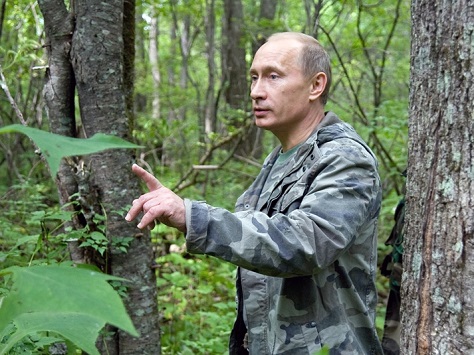
Normally, Russian president Vladimir Putin would be gearing up to run for reelection in 2016. ![]()
Instead, after changes that extend the presidential term to six years, Russians will vote only to elect the 450 members of the Duma (ду́ма), the lower house of the Russian parliament. No one doubts that, given the lopsided advantages of Putin’s autocratic administration, the ruling party, United Russia (Еди́ная Росси́я), will emerge with a firm majority. With no united liberal opposition, Putin’s political opponents include Communists that thrive on Soviet nostalgia and the anti-liberal, anti-democratic ‘Liberal Democrats,’ a gang of outlandish ultranationalists. Both groups are, at turns, comically ineffective and obsequious.
But the September legislative vote could become a tantalizing point that galvanizes protest against Putin’s regime, just as in 2011. With oil prices so low, Putin can no longer point to rising standards of living as the basis for perpetual support. By the end of 2016, his military adventures from Ukraine to Syria may find everyday Russians less than enthusiastic about Putin’s push for wider global relevance. That means that, as elections near, Putin will tighten his grip on the media and other outlets for criticism.
The assassination of Boris Nemtsov, a 1990s-era liberal, marked a dangerous turning point for Russia’s opposition, following years of persecution for critics and journalists alike. But it also highlighted that a new generation, savvier and more nationalist, is now rising as the face of the opposition. No one personifies that more than Alexei Navalny, whose star has only grown from the heavy-handed harassment of Russia’s ruling class.
10. Georgia: October
parliamentary elections
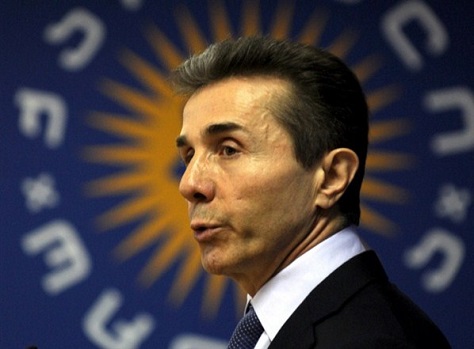
It was something of a shock last week when Georgia’s 33-year-old prime minister Irakli Garibashvili abruptly resigned, clearing the way for foreign minister Giorgi Kvirikashvili to take the reins as a caretaker through the 2016 elections.![]()
What do Garibashvili and Kvirikashvili both share in common? Longtime personal ties to Georgia’s wealthiest businessman, Bidzina Ivanishvili, who served as prime minister from 2012 to 2013 and is widely seen as the power behind Georgia’s current government. Ivanishvili bankrolled the Georgian Dream (ქართული ოცნება) coalition in 2012, wresting power away from the pro-western, reform-minded administration of Mikheil Saakashvili.
Since 2012, the Georgia Dream-led government has restored the ties with Russia that Saakashvili ruptured without simultaneously abandoning closer ties with Europe. Among its chief accomplishments is a freshly ratified association agreement with the European Union. But the efforts to reform Georgia and attract greater investment have stalled within a coalition lacking any uniting ideology or policy goals. Georgia’s economic growth has sputtered, partially as a result of its government’s lack of purpose, and voters may well be in a mood to punish Ivanishvili and his vanguard of loyal officials.
Saakashvili, who fled Georgia after handing power to Ivanishvili and who is now serving as a special adviser to Ukraine’s new government as Odessa’s regional governor, will probably not return to lead the opposition, and the government’s politically motivated crusade against former Saakashvili officials has undermined the rule of law.
But another group of liberals, the Free Democrats (თავისუფალი დემოკრატები), are well-placed to emerge as a powerful third force. Led by charismatic former defense minister Irakli Alasania, the party left the Georgian Dream coalition in 2014 when Alasania was sacked.
11. France: October
presidential primary contests

If 2014 and 2015 belonged to terrorism and the anti-immigration, populist politics of Marine Le Pen and the hard-right Front national (FN, National Front), 2016 may well belong to the political mainstream in France, where voters recently turned out to deny Le Pen’s party victory in the second round of regional elections.![]()
It’s true that Marine Le Pen stands a very good chance of winning the first round of the 2017 presidential election, though most polls show that in a runoff, Le Pen would lose in a landslide to any of her likely opponents — even the unpopular incumbent, François Hollande of the ruling center-left Parti socialiste (PS, Socialist Party).
Former president Nicolas Sarkozy hopes to make a formal comeback to politics in 2016 by winning the presidential nomination of the center-right Les Républicains (Republicans), now rechristened under Sarkozy’s leadership. He will face off, likely in October, in a primary contest against his former foreign minister, 70-year-old Alain Juppé, who is also the mayor of Bordeaux and who served as Jacques Chirac’s prime minister in the mid-1990s. Juppé polls better against Le Pen than anyone else on the right or the left, and he might capitalize on doubts about Sarkozy’s personal character during his first stint in office, along with a handful of dubious legal clouds hanging over Sarkozy.
Though Hollande expects to run for reelection, there’s a chance that he will stand down if his popularity remains low or if France’s unemployment rate, which remains stubbornly high at 10.6%, doesn’t fall over the course of 2016. Nevertheless, he might still face his own primary contest later next year, including from his own prime minister, Manuel Valls, who hails from the Socialists’ right wing, or from a more leftist challenger, such as Martine Aubry.
12. Ghana: November 7
presidential and parliamentary elections
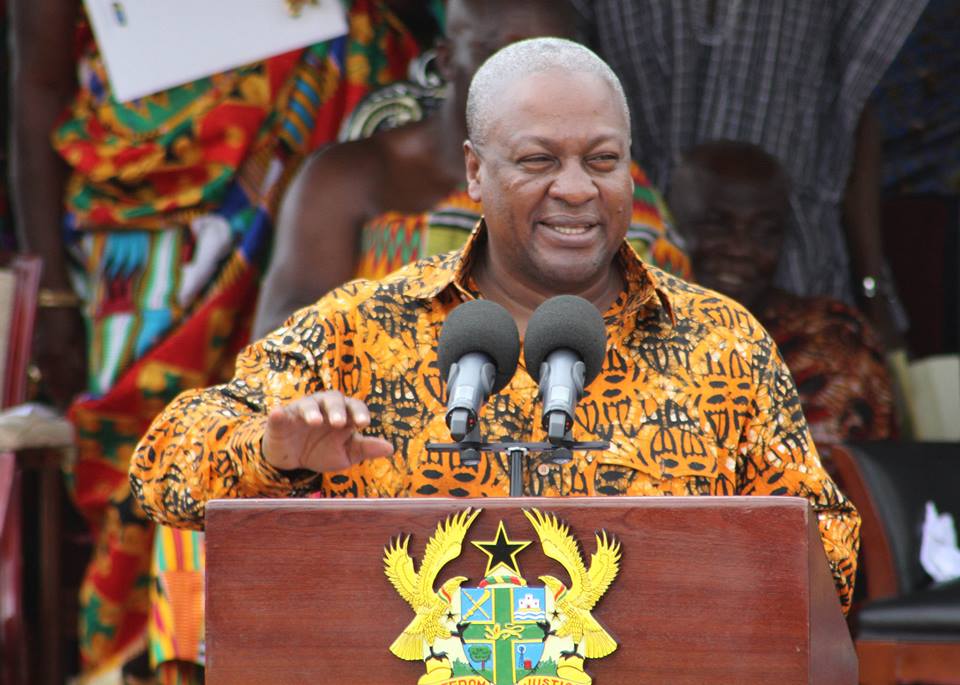
Ghana’s general election in late 2016 is shaping up as a rematch of the 2012 election, pitting the incumbent, John Dramani Mahama, and the runner-up in both the 2008 and 2012 elections, Nana Akufo-Addo.![]()
Mahama, then vice president, ascended to the presidency in 2012 after the untimely death of John Atta Mills, and he won (very narrowly) his own mandate in December 2012 for a full term.
Ghana, a west African country of 27 million people, remains a case study in growth and stability, and it is slowly transitioning into middle-income status. In the prior election, Akuko-Addo campaigned on a much stronger social welfare net, better access to health care and extending universal primary education to secondary education for all.
In 2016, Akuko-Addo will also point to the Mahama government’s perceived failures, including a weak economy in 2014 and 2015 and an increasingly serious power and energy crisis, notwithstanding accelerating oil development since the early 2010s.
Ghana will also choose the 275 members of its unicameral parliament, which is nearly split between Mahama’s majority National Democratic Congress (NDC) and AKuko-Addo’s opposition New Patriotic Party (NPP). The 2016 elections, however, may present a twist to Ghana’s two-party system in Samia Nkrumah, the daughter of Ghana’s first president (Kwame Nkumrah) and the leader of Ghana’s resurrected ruling party of the 1950s and the 1960s, the Convention People’s Party. Nkumrah hopes to run for the presidency against both Mahama and Akuko-Addo.
13. United States: November 8
presidential and congressional elections
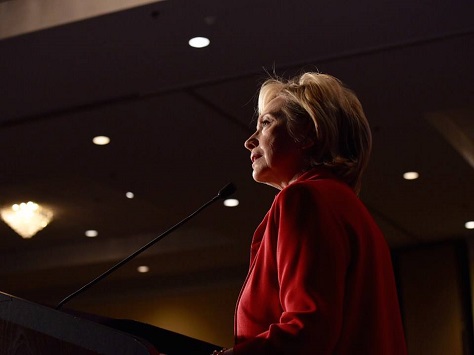
The United States may be learning to adapt to an increasingly multipolar world, but there’s still no doubt that it plays a vital role in maintaining the global order. That’s true no matter who follows Barack Obama to become the country’s 45th president in January 2017. ![]()
Obama’s Democratic Party is almost certain to nominate former first lady, New York senator and secretary of state Hillary Clinton. Though she faces stiff competition from Vermont senator Bernie Sanders from the ‘democratic socialist’ left, there’s a sense that Clinton, who narrowly lost the 2008 nomination to Obama, has the path of least resistance to the presidency. As the first woman to sit in the Oval Office, Clinton could become an inspiration to women worldwide, and there’s every reason to expect that she would continue her advocacy for women’s rights, both at home (expect a push to introduce national maternity leave) and abroad. But she would almost certainly be more hawkish than her predecessor, especially on matters in the Middle East like the Israeli peace process and the Syrian civil war.
The battle for the Republican Party nomination is more unsettled than any contest in decades, with at least five top-tier contenders in the mix — businessman Donald Trump, Texas senator Ted Cruz, Florida senator Marco Rubio, former Florida governor Jeb Bush and New Jersey governor Chris Christie. The leading candidates bring a surprising diversity of foreign policy views to the 2016 race. In particular, Rubio, Bush and Christie have embraced the hawkish neo-conservatism of the last Bush administration. Cruz, a first-generation Cuban-American who has made a name for himself as a freshman in Congress willing to thumb his nose at the Republican leadership, has articulated a far more nuanced worldview. Trump, who has channeled the anti-immigration, anti-Muslim id of the populist right, could split the party altogether if he wins the nomination.
Though right-wing Republicans seem destined to dominate the House of Representatives, the lower house of Congress, the Democrats have a good shot at retaking the Senate, the upper house, which will have the power to approve the next president’s cabinet and other high-level appointees — as well as, potentially, one or more justices of the US supreme court.
14. Democratic Republic of the Congo: November 27
presidential and parliamentary elections
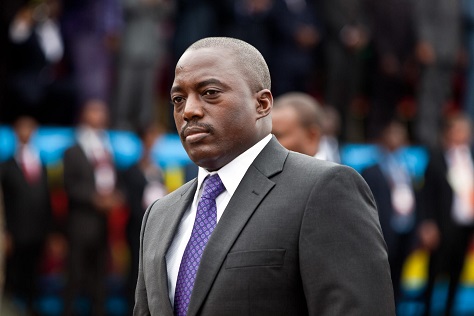
Though he is constitutionally barred from running for reelection, Joseph Kabila seems determined to push for a third term, extending an administration that began in 2001 with his father, Laurent Kabila.
Under the junior Kabila, the country’s long-simmering civil war has pacified, but the state is still far from unified in any meaningful sense, and nominal GDP per capita is below $500, making Congo one of the world’s poorest and least developed countries. With over 81 million people, the country (Africa’s largest by area), Congo matters to the continent, and the recent Congolese civil war demonstrated that violence may easily spiral well beyond its borders and reverberate throughout east and central Africa.
Kabila’s apparent determination to proceed with reelection has engendered political protest, while deepening the divisions both within Kabila’s inner circle and between Kabila’s government and the opposition Union pour la Démocratie et le Progrès Social (UDPS, Union for Democracy and Social Progress).
Rwandan president Paul Kagame won approval in a December referendum that clears the way for him to run for reelection in 2017. Though the United States and Kagame’s other global fans would prefer him to step aside for the sake of Rwanda’s long-term political stability, Kagame’s popularity is so high that he could genuinely win a mandate for a third term.
In Congo, however, Kabila is less popular, and his victories in two prior elections are disputed. That means that Congo’s election saga might be more like Burundi’s, where Pierre Nkurunziza ‘s decision to force reelection (again, despite term limits) led to escalating and ongoing political violence.
If enough of Kabila’s allies sour on his reelection, it isn’t impossible that a military coup d’état could oust him. More likely is a coalition to unite behind Moïse Katumbi, the governor of the southern Katanga province from 2007 until September 2015, when he left the ruling party over Kabila’s 2016 reelection plans. As a powerful and competent governor, who worked to reinvest locally the proceeds of Katanga’s copper and other mineral wealth, Katumbi was already one of the country’s rising stars. His presidential campaign could yet dispatch Kabila democratically.
15. Australia: before January 2017
parliamentary elections
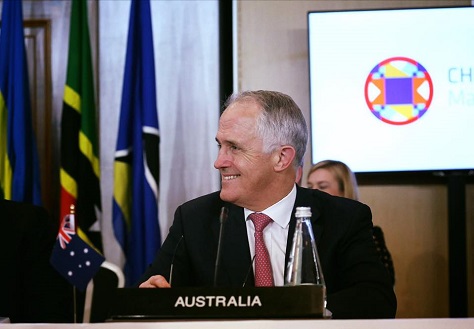
Though Australia’s new prime minister Malcolm Turnbull need not call an election until mid-January 2017, there’s every reason to believe he will call one sooner, perhaps as early as spring 2016. ![]()
For starters, he rose to the premiership only after ousting his predecessor, the more hardline conservative Tony Abbott, in a Liberal Party ballot in September 2015, bringing to an end a troubled government that lasted just two years. Though Abbott kept a promise to roll back the previous Labor government’s carbon pricing scheme and an unpopular mining profits tax, his leadership style annoyed many Australians, including the moderate voters who tend to hold the balance of power. Abbott, meanwhile, abandoned a promise to extend the scope of the country’s paid parental leave program, and his decision to reintroduce honors met with widespread ridicule.
Turnbull, Abbott’s communications minister, a former Liberal Party leader himself, and a pragmatic former businessman who years ago championed the fight to transform Australia from a constitutional monarchy into a republic, has a softer line on many issues, including climate change and same-sex marriage. Since becoming the head of the Liberal/National government four months ago, polls that gave Labor a steady lead have reversed — Turnbull’s Liberals have consistently led ever major survey since his ascension. (That’s another reason to wager on an election sooner rather than later).
Labor’s leader Bill Shorten has ably transcended the self-defeating sniping that characterized the left’s previous stint in power, as prime ministers Kevin Rudd and Julia Gillard plotted against each other. It’s now the Liberals who are cannibalizing their own prime ministers. Given Australia’s dependence on the Asian economy and, in particular, Chinese demand for its mineral exports, a severe regional downturn could yet give Shorten the boost he needs to dent Turnbull’s halo. In the meanwhile, Turnbull has introduced a bill designed to regulate Australia’s labor unions, a push that could become the catalyst for a rare ‘double-dissolution’ election that would involve every member of both houses of the Australian parliament.
16. Colombia: TBD
peace negotiations referendum

It’s no overstatement to say that Colombian president Juan Manuel Santos’s legacy depends on securing a long-term peace settlement to end the 50-year rebellion of the left-wing, guerrilla Fuerzas Armadas Revolucionarias de Colombia (FARC). ![]()
What began as a bold step in his first term is now the defining project of the Santos administration — so much so that Santos nearly lost his bid for reelection by appearing to spend more time focusing on peace negotiations than on bread-and-butter economic issues.
As a critical March 2016 deadline approaches, Santos remains justifiably optimistic, even as negotiators wrangle over land reform, FARC disarmament and, most importantly, the future political participation of rebel leaders.
Santos has repeatedly promised to put any final deal to a popular referendum, and the term-limited president will want to call that vote well before the 2018 presidential election.
From the beginning, Santos’s predecessor, Álvaro Uribe, has bitterly opposed the peace talks. As Uribe’s defense secretary, Santos seemed set to follow Uribe’s hard-line, no-compromise course against FARC. When Santos diverged from Uribe, however, he drew the ire of his mentor, who formed a new conservative political party, Centro Democrático (CD, Democratic Center). An Uribe-backed candidate, Óscar Iván Zuluaga, won the first round of the presidential election in May 2014, and Santos only won the runoff by a narrow six-point margin a month later.
If, as expected, the Colombian government and FARC leaders reach a final deal in 2016, it will almost certainly go before voters. Just as certainly, however, Uribe and his allies will stop at nothing to thwart it. Most Colombians seem well-disposed to the Santos approach, weary to end the chapter of far-left guerrilla rebellion and far-right military reprisals. But any deal is sure to contain controversial aspects, including the potential amnesty of FARC rebels, and Uribe will be certain to emphasize the most unpopular elements of a deal to derail it.
* * * * *
Of course, there are more than just 16 elections worth watching in the new year. Here are 16 more honorable mentions:
- Haiti: January (presidential runoff).
 What began as a free-for-all on October 25 among 54 different candidates was supposed to end on December 27 between Jovenel Moïse and Jude Célestin. Instead, growing doubts about fraud and electoral integrity forced Haiti’s government to postpone the vote indefinitely pending the report of a hastily appointed electoral commission. The country must reschedule the runoff for sometime in January so that outgoing president Michel Martelly, who is term-limited, can hand over power in early February. Six years after a devastating earthquake, Haiti’s next president will struggle in a country still recovering, burdened with the strain of poverty, environmental degradation, ineffective foreign aid and corruption. Neither Moïse, a political novice with ties to Martelly, nor Célestin, who was pushed out of the race in 2010 over fraud concerns, seems likely to rise to the challenge.
What began as a free-for-all on October 25 among 54 different candidates was supposed to end on December 27 between Jovenel Moïse and Jude Célestin. Instead, growing doubts about fraud and electoral integrity forced Haiti’s government to postpone the vote indefinitely pending the report of a hastily appointed electoral commission. The country must reschedule the runoff for sometime in January so that outgoing president Michel Martelly, who is term-limited, can hand over power in early February. Six years after a devastating earthquake, Haiti’s next president will struggle in a country still recovering, burdened with the strain of poverty, environmental degradation, ineffective foreign aid and corruption. Neither Moïse, a political novice with ties to Martelly, nor Célestin, who was pushed out of the race in 2010 over fraud concerns, seems likely to rise to the challenge.
- Vietnam: (Communist Party Congress) January 20-28.
 Unlike in Myanmar, there’s no real sign that Vietnam is ready for political liberalization. But even those countries that lack free and fair elections don’t necessarily lack politics. So it’s true in Vietnam, another rising Asian power, with a population of nearly 92 million and a growing economy that is set for huge gains if the Trans-Pacific Partnership becomes a reality. Though the country’s rubber-stamp parliamentary elections are set for May, the real action will come much sooner, when the Đảng Cộng sản Việt Nam (Vietnamese Communist Party) holds its 12th Congress. Held every five years, the meetings will determine the Politburo, Secretariat and, perhaps most importantly, the general secretary. Nguyễn Phú Trọng, elected general secretary at the 11th National Party Congress in 2011, is 71 years old, and Party leaders may look for a younger figure who can steer Vietnam well into the 2020s. But one person to watch is the relatively pro-Western, reformist Nguyễn Tấn Dũng; at age 66, Dũng is a steady hand, serving as deputy prime minister from 1997 to 2006 and, from 2006, as Vietnam’s prime minister.
Unlike in Myanmar, there’s no real sign that Vietnam is ready for political liberalization. But even those countries that lack free and fair elections don’t necessarily lack politics. So it’s true in Vietnam, another rising Asian power, with a population of nearly 92 million and a growing economy that is set for huge gains if the Trans-Pacific Partnership becomes a reality. Though the country’s rubber-stamp parliamentary elections are set for May, the real action will come much sooner, when the Đảng Cộng sản Việt Nam (Vietnamese Communist Party) holds its 12th Congress. Held every five years, the meetings will determine the Politburo, Secretariat and, perhaps most importantly, the general secretary. Nguyễn Phú Trọng, elected general secretary at the 11th National Party Congress in 2011, is 71 years old, and Party leaders may look for a younger figure who can steer Vietnam well into the 2020s. But one person to watch is the relatively pro-Western, reformist Nguyễn Tấn Dũng; at age 66, Dũng is a steady hand, serving as deputy prime minister from 1997 to 2006 and, from 2006, as Vietnam’s prime minister.
- Myanmar/Burma: February (presidential). Perhaps the mos
 t jaw-dropping election in 2015 was the landslide victory of Aung San Suu Kyi’s National League for Democracy (NLD), most notably the willingness of the military government to permit Suu Kyi and her democratic legislators to take power. When Suu Kyi’s cadres take power in early 2016, they will find that the military still controls much of the country, including one-fourth of the seats in the House of Nationalities and the defense, border security and internal affairs ministries. But the NLD will have the power to select the country’s new president, replacing Thein Sein, the ‘civilian’ reformer who has served an important transitional rule to greater democracy, freedom and openness. The country’s military leaders long ago amended the constitution to prohibit Suu Kyi’s election to the presidency. For now, Suu Kyi seems willing to forego what would be a difficult fight to amend the constitution, ceding formal presidential power to an ally so as to spend precious political capital for deeper political and economic reforms in Myanmar and to effect a national reconciliation. One option is Shwe Mann, a former general and one-time ally of Thein Sein, who has served as an intermediary between the two political camps both before and after the election.
t jaw-dropping election in 2015 was the landslide victory of Aung San Suu Kyi’s National League for Democracy (NLD), most notably the willingness of the military government to permit Suu Kyi and her democratic legislators to take power. When Suu Kyi’s cadres take power in early 2016, they will find that the military still controls much of the country, including one-fourth of the seats in the House of Nationalities and the defense, border security and internal affairs ministries. But the NLD will have the power to select the country’s new president, replacing Thein Sein, the ‘civilian’ reformer who has served an important transitional rule to greater democracy, freedom and openness. The country’s military leaders long ago amended the constitution to prohibit Suu Kyi’s election to the presidency. For now, Suu Kyi seems willing to forego what would be a difficult fight to amend the constitution, ceding formal presidential power to an ally so as to spend precious political capital for deeper political and economic reforms in Myanmar and to effect a national reconciliation. One option is Shwe Mann, a former general and one-time ally of Thein Sein, who has served as an intermediary between the two political camps both before and after the election.
- New Zealand: March 3 to 24 (flag referendum). It’s
 not the most important world election in 2016, but it might be the most fun. New Zealand’s voters will have the opportunity to participate in the third and final vote in a months-long postal referendum to determine whether to replace the country’s flag, which many Kiwis believe to be both too colonial and too similar to Australia’s flag.
not the most important world election in 2016, but it might be the most fun. New Zealand’s voters will have the opportunity to participate in the third and final vote in a months-long postal referendum to determine whether to replace the country’s flag, which many Kiwis believe to be both too colonial and too similar to Australia’s flag.
- Ireland: April 4 (parliamentary). Throughout Europe, it’s b
 een a mixed bag for governments that have had to push through ‘austerity’ policies to bring budgets in line with the limits set forth in the eurozone’s fiscal compact. That includes Ireland, whose banks suffered greatly from the 2008-09 global financial crisis. Voters truly like Enda Kenny, who has served as Taoiseach since the last election in 2011, and his party, the center-right, liberal Fine Gael holds a double-digit lead against its nearest competition, the more right-wing (and socially conservative) Fianna Fáil, which still shoulders much of the blame among voters for so much economic pain at the end of the 2000s. Kenny’s junior coalition partner, the more leftist Labour Party, hasn’t had the same luck, and it could lose nearly half its support from 2011. The beneficiary has been Sinn Féin, the controversial left-wing republican party, which has shrewdly sidelined the older generation of its leadership with stronger ties to the militant Irish Republican Army, including its leader Gerry Adams. Instead, a younger generation of leaders, including Mary Lou McDonald, are emerging on a stridently anti-austerity and eurosceptic platform.
een a mixed bag for governments that have had to push through ‘austerity’ policies to bring budgets in line with the limits set forth in the eurozone’s fiscal compact. That includes Ireland, whose banks suffered greatly from the 2008-09 global financial crisis. Voters truly like Enda Kenny, who has served as Taoiseach since the last election in 2011, and his party, the center-right, liberal Fine Gael holds a double-digit lead against its nearest competition, the more right-wing (and socially conservative) Fianna Fáil, which still shoulders much of the blame among voters for so much economic pain at the end of the 2000s. Kenny’s junior coalition partner, the more leftist Labour Party, hasn’t had the same luck, and it could lose nearly half its support from 2011. The beneficiary has been Sinn Féin, the controversial left-wing republican party, which has shrewdly sidelined the older generation of its leadership with stronger ties to the militant Irish Republican Army, including its leader Gerry Adams. Instead, a younger generation of leaders, including Mary Lou McDonald, are emerging on a stridently anti-austerity and eurosceptic platform.
- Saskatchewan: April 4 (provincial elections). After


prime minister Stephen Harper lost his bid for a fourth consecutive term in October 2015, the Conservatives neither hold power at the federal level nor in a single provincial assembly. With Liberal prime minister Justin Trudeau enjoying a political honeymoon of epic proportions, however, Saskatchewan seems likely to buck Canada’s left turn by reelecting the Saskatchewan Party, a provincial group that draws support from conservatives and former Liberals. Premier Brad Wall, a no-nonsense prairie conservative and an ally of business and the oil industry, demurred from the opportunity to lead a post-Harper Conservative Party. But his likely reelection in the Canadian heartland could cement his role as the de facto voice of Canada’s conservative opposition.
- London: May 5 (mayoral election). Labou

 r leader Jeremy Corbyn’s approach as the United Kingdom’s unlikely hard-left opposition leader will face its first major test on May 5 in a series of regional elections, including those in Scotland, Wales and Northern Ireland. London’s centrality to the British media, cultural, political and financial elite means that perhaps the most visible fight will be the race to replace London’s popular Conservative mayor Boris Johnson, also an MP, who is stepping down after two terms and has designs on succeeding British prime minister David Cameron in time for the 2020 general election. Labour’s candidate, Sadiq Khan, won the mayoral nomination on the same day that Corbyn clinched the Labour leadership nationally. A longtime ally of former leader Ed Miliband, Khan has benefited from the turn away from the Blairite ‘New Labour’ faction, though he’s more moderate than the Corbynites. A Muslim and a second-generation immigrant, his working-class background will appeal to a London that wears its global cosmopolitanism on its sleeve. Conservative challenger Zac Goldsmith, a former journalist and a member of the House of Commons since 2010, personifies the kind of hip, socially moderate Tory that just might appeal to London’s voters, though he (like everyone else in his party) lacks Boris’s outsized personality.
r leader Jeremy Corbyn’s approach as the United Kingdom’s unlikely hard-left opposition leader will face its first major test on May 5 in a series of regional elections, including those in Scotland, Wales and Northern Ireland. London’s centrality to the British media, cultural, political and financial elite means that perhaps the most visible fight will be the race to replace London’s popular Conservative mayor Boris Johnson, also an MP, who is stepping down after two terms and has designs on succeeding British prime minister David Cameron in time for the 2020 general election. Labour’s candidate, Sadiq Khan, won the mayoral nomination on the same day that Corbyn clinched the Labour leadership nationally. A longtime ally of former leader Ed Miliband, Khan has benefited from the turn away from the Blairite ‘New Labour’ faction, though he’s more moderate than the Corbynites. A Muslim and a second-generation immigrant, his working-class background will appeal to a London that wears its global cosmopolitanism on its sleeve. Conservative challenger Zac Goldsmith, a former journalist and a member of the House of Commons since 2010, personifies the kind of hip, socially moderate Tory that just might appeal to London’s voters, though he (like everyone else in his party) lacks Boris’s outsized personality.
- Dominican Republic: May 15 (presidential and parliament
 ary). Danilo Medina, who has presided over a growing economy and relative stability, is so widely popular with the electorate that he convinced the Dominican parliament to revoke a new one-term limitation for presidents, paving the way for him to run for reelection. That was controversial only insofar as it meant that Medina (and not former president Leonel Fernández) would lead the center-left Partido de la Liberación Dominicana (PLD, Dominican Liberation Party) into 2016, though Fernández essentially paved the way for Medina to achieve the presidency — with Fernández’s wife Margarita Cedeño serving as vice president. Despite a clumsy stumble over deporting Dominicans of Haitian descent to Haiti, Medina is seen as far less corrupt than his predecessor, a champion of social development (including education and literacy) and an honest broker in trying to reduce the country’s rampant crime.
ary). Danilo Medina, who has presided over a growing economy and relative stability, is so widely popular with the electorate that he convinced the Dominican parliament to revoke a new one-term limitation for presidents, paving the way for him to run for reelection. That was controversial only insofar as it meant that Medina (and not former president Leonel Fernández) would lead the center-left Partido de la Liberación Dominicana (PLD, Dominican Liberation Party) into 2016, though Fernández essentially paved the way for Medina to achieve the presidency — with Fernández’s wife Margarita Cedeño serving as vice president. Despite a clumsy stumble over deporting Dominicans of Haitian descent to Haiti, Medina is seen as far less corrupt than his predecessor, a champion of social development (including education and literacy) and an honest broker in trying to reduce the country’s rampant crime.
- Italy: likely October (constitutional referendum). Prime m
 inister Matteo Renzi has pledged to hold a defining vote on nearly abolishing the Senato (Senate), the troublesome upper house of Italy’s parliament. Proposed reforms would reduce both the Senate’s size and its power, and it would compliment a new Renzi-led election law reform to facilitate majority government in the future. For now, Renzi and his center-left Partito Democratico (PD, Democratic Party) look strong against the divided and leaderless Italian right. But Renzi, the 40-year-old former Florence mayor, who took power in early 2014 by pushing aside his ally, the more technocratic Enrico Letta, has been more talk than action on reforms. With a sputtering economy, and with no progress on economic, labor market or public sector reforms, the Italian electorate may use the referendum as an opportunity to register its impatience with its young new leader.
inister Matteo Renzi has pledged to hold a defining vote on nearly abolishing the Senato (Senate), the troublesome upper house of Italy’s parliament. Proposed reforms would reduce both the Senate’s size and its power, and it would compliment a new Renzi-led election law reform to facilitate majority government in the future. For now, Renzi and his center-left Partito Democratico (PD, Democratic Party) look strong against the divided and leaderless Italian right. But Renzi, the 40-year-old former Florence mayor, who took power in early 2014 by pushing aside his ally, the more technocratic Enrico Letta, has been more talk than action on reforms. With a sputtering economy, and with no progress on economic, labor market or public sector reforms, the Italian electorate may use the referendum as an opportunity to register its impatience with its young new leader.
- Zambia: September 20 (presidential election).
 The untimely death of Michael Sata in October 2014 forced a snap presidential election in January 2015 to succeed him. The candidate of Sata’s party, the Patriotic Front, former defense minister Edgar Lungu, only narrowly defeated Hakainde Hichilema, the candidate of the opposition United Party for National Development. Everyone expects the rematch to be even more scintillating than the 2015 version. Lungu’s very public collapse in March 2015 has led to worries about his health — an important consideration in a country where two presidents have died in office since 2008. Moreover, there’s a sense that Hichilema had much of the momentum as the January 2015 campaign ended — and that he could easily take the presidency from a weak Lungu in 2016.
The untimely death of Michael Sata in October 2014 forced a snap presidential election in January 2015 to succeed him. The candidate of Sata’s party, the Patriotic Front, former defense minister Edgar Lungu, only narrowly defeated Hakainde Hichilema, the candidate of the opposition United Party for National Development. Everyone expects the rematch to be even more scintillating than the 2015 version. Lungu’s very public collapse in March 2015 has led to worries about his health — an important consideration in a country where two presidents have died in office since 2008. Moreover, there’s a sense that Hichilema had much of the momentum as the January 2015 campaign ended — and that he could easily take the presidency from a weak Lungu in 2016.
- Basque Country: before November 20 (regional

 election). Recently, it’s been Catalonia that’s given Spain’s national government headaches. But in the northern mountains of prosperous Euskadi, a decade-long ceasefire with the radical ETA guerrillas has held. Polls generally give regional leader (known as the ‘lehendakri’) Iñigo Urkullu and his regionalist Basque Nationalist Party (EAJ-PNV) the highest share of voter support. But the left-wing, pro-independence Euskal Herria Bildu (EHB) is growing in popularity, as is the local branch of the new anti-austerity Podemos movement; together, the two could present a stark challenge to the Basque Country’s traditional nationalists.
election). Recently, it’s been Catalonia that’s given Spain’s national government headaches. But in the northern mountains of prosperous Euskadi, a decade-long ceasefire with the radical ETA guerrillas has held. Polls generally give regional leader (known as the ‘lehendakri’) Iñigo Urkullu and his regionalist Basque Nationalist Party (EAJ-PNV) the highest share of voter support. But the left-wing, pro-independence Euskal Herria Bildu (EHB) is growing in popularity, as is the local branch of the new anti-austerity Podemos movement; together, the two could present a stark challenge to the Basque Country’s traditional nationalists.
- Morocco: November (parliamentary). T
 hough Morocco’s king, Mohammed VI, didn’t lose power in the 2011 ‘Arab Spring’ protests, he was nevertheless forced to introduce constitutional reforms ceding a moderate amount of power to the Moroccan parliament. In elections later that year, the Justice and Development Party (حزب العدالة والتنمية), an Islamic democratic party, won the largest share of the vote, and its leader, Abdelillah Benkirane, has led Morocco’s government for the past five years. While critics are exasperated with the slowing pace of political and economic reforms alike, the Islamists scored impressive victories in Rabat, Casablanca, Tangier, Fez and Marrakesh in September 2015’s local elections, demonstrating that Moroccans still believe the royalist Authenticity and Modernity Party (حزب الأصالة والحداثة) too corrupt and out of touch.
hough Morocco’s king, Mohammed VI, didn’t lose power in the 2011 ‘Arab Spring’ protests, he was nevertheless forced to introduce constitutional reforms ceding a moderate amount of power to the Moroccan parliament. In elections later that year, the Justice and Development Party (حزب العدالة والتنمية), an Islamic democratic party, won the largest share of the vote, and its leader, Abdelillah Benkirane, has led Morocco’s government for the past five years. While critics are exasperated with the slowing pace of political and economic reforms alike, the Islamists scored impressive victories in Rabat, Casablanca, Tangier, Fez and Marrakesh in September 2015’s local elections, demonstrating that Moroccans still believe the royalist Authenticity and Modernity Party (حزب الأصالة والحداثة) too corrupt and out of touch.
- Nicaragua: November (presidential and p
 arliamentary). A constitutional referendum in 2014 paved the way for Nicaragua’s president Daniel Ortega to run for a third consecutive term. No one doubts that his political movement, which now freely commingles with the country’s government, will triumph against a weak opposition. Though Ortega’s brand of socialist populism is on the wane throughout the region, the Sandinista leader remains popular at home. Nicaragua suffers markedly fewer homicides than its neighbors and, despite the sputtering of a Chinese-backed scheme to build an alternative to the Panama Canal, the Nicaraguan economy is steadily growing.
arliamentary). A constitutional referendum in 2014 paved the way for Nicaragua’s president Daniel Ortega to run for a third consecutive term. No one doubts that his political movement, which now freely commingles with the country’s government, will triumph against a weak opposition. Though Ortega’s brand of socialist populism is on the wane throughout the region, the Sandinista leader remains popular at home. Nicaragua suffers markedly fewer homicides than its neighbors and, despite the sputtering of a Chinese-backed scheme to build an alternative to the Panama Canal, the Nicaraguan economy is steadily growing.
- Romania: November (parliamentary). Thirteen months ago, Victor Ponta seemed on
 top of the world. After winning a landslide victory in Romania’s 2012 elections, the young leader thumbed his nose at EU officials, trampling constitutional norms in one of the newest members of the European Union. Then Ponta lost a bid in November 2014 to become the country’s president. Dogged by corruption charges, Ponta temporarily stepped down in June, ostensibly to recover from knee surgery. He resigned for good in early November 2015, felled by protesters angry over a deadly fire in a Bucharest nightclub. With Ponta’s exit, the scandal-ridden, center-left Partidul Social Democrat (PSD, Social Democratic Party) might easily succumb to a center-right government led by the Partidul Național Liberal (PNL, National Liberal Party), whose leader Alina Gorghiu is a rising star close to Klaus Iohannis, Romania’s new president. Moreover, her party is set to merge formally with the Partidul Democrat-Liberal (PDL, Democratic Liberal Party), formally consolidating the Romanian right.
top of the world. After winning a landslide victory in Romania’s 2012 elections, the young leader thumbed his nose at EU officials, trampling constitutional norms in one of the newest members of the European Union. Then Ponta lost a bid in November 2014 to become the country’s president. Dogged by corruption charges, Ponta temporarily stepped down in June, ostensibly to recover from knee surgery. He resigned for good in early November 2015, felled by protesters angry over a deadly fire in a Bucharest nightclub. With Ponta’s exit, the scandal-ridden, center-left Partidul Social Democrat (PSD, Social Democratic Party) might easily succumb to a center-right government led by the Partidul Național Liberal (PNL, National Liberal Party), whose leader Alina Gorghiu is a rising star close to Klaus Iohannis, Romania’s new president. Moreover, her party is set to merge formally with the Partidul Democrat-Liberal (PDL, Democratic Liberal Party), formally consolidating the Romanian right.
- Jamaica: December (parliamentary). Like
 many countries in the Caribbean, Jamaica is dealing with a growing budgetary crisis as its share of debt (as a percentage of GDP) increases, all while demand for tourism and agricultural products remains flat. Portia Simpson-Miller, prime minister since 2012, has struggled to balance social welfare needs with increasing fiscal pressure — including the terms of an IMF program that delivered nearly $40 billion in financing to Jamaica’s government. A lack of economic opportunity could swing the pendulum away from the center-left People’s National Party (PNP) back to former prime minister Andrew Holness, the leader of the center-right Jamaica Labour Party (JLP).
many countries in the Caribbean, Jamaica is dealing with a growing budgetary crisis as its share of debt (as a percentage of GDP) increases, all while demand for tourism and agricultural products remains flat. Portia Simpson-Miller, prime minister since 2012, has struggled to balance social welfare needs with increasing fiscal pressure — including the terms of an IMF program that delivered nearly $40 billion in financing to Jamaica’s government. A lack of economic opportunity could swing the pendulum away from the center-left People’s National Party (PNP) back to former prime minister Andrew Holness, the leader of the center-right Jamaica Labour Party (JLP).
- Venezuela: TBD (presidential recall). Almost immediatel
 y after president Nicolás Maduro and the chavistas who control Venezuela’s government conceded their defeat in December parliamentary elections, they were soon trying to use their power over the judiciary to keep members of the opposition Mesa de la Unidad Democrática (
y after president Nicolás Maduro and the chavistas who control Venezuela’s government conceded their defeat in December parliamentary elections, they were soon trying to use their power over the judiciary to keep members of the opposition Mesa de la Unidad Democrática (MUD, Democratic Unity Roundtable) from taking power. One reason why the ruling chavistas might want to throw up roadblocks is to prevent the opposition, which won a two-thirds majority in the National Assembly, from demanding a recall vote to remove Maduro from office. With the world’s worst performing economy in 2015, it wouldn’t take much for the opposition to push Maduro out of power altogether, and it may well be a prerequisite for the new parliament to enact any reforms to repair the country’s state-heavy economy. Though chavismo came to power with a democratic mandate, it’s grown into something far more autocratic and corrupt over 16 years.
i love ur blog a lot! we think I will visit your site again soon.
THE FURTHER UN E=GOVT POLITECALLY STAT LED OR WORLD ECONOMICS AND PERSONALY BISSNIS FY RIO 2007 2016 2017 2021 MISSOIN ASIA ARAB EUROP USA AFFRICA UN GOVT